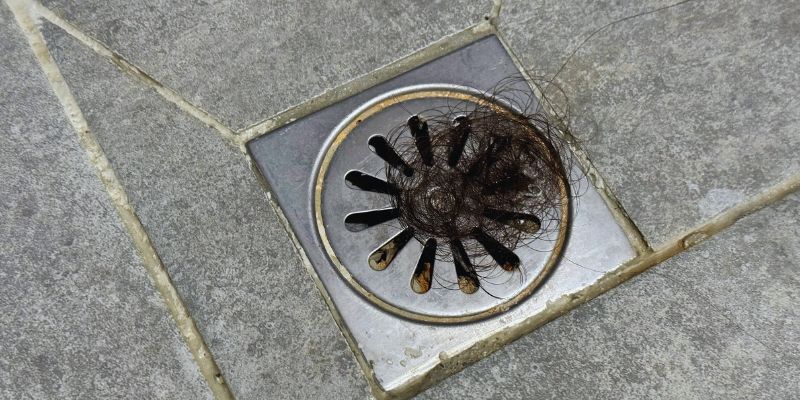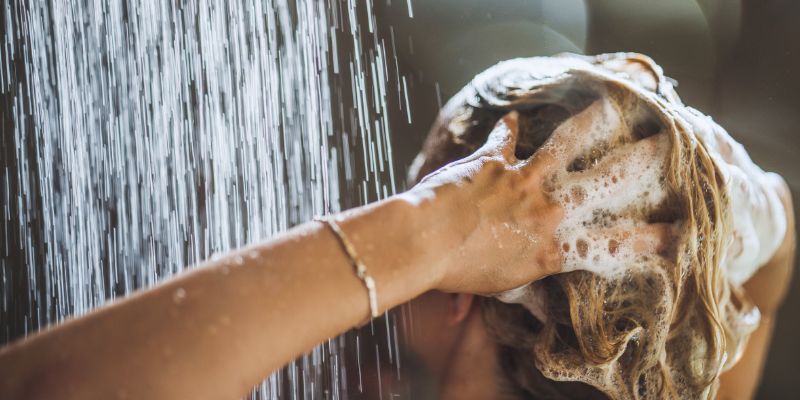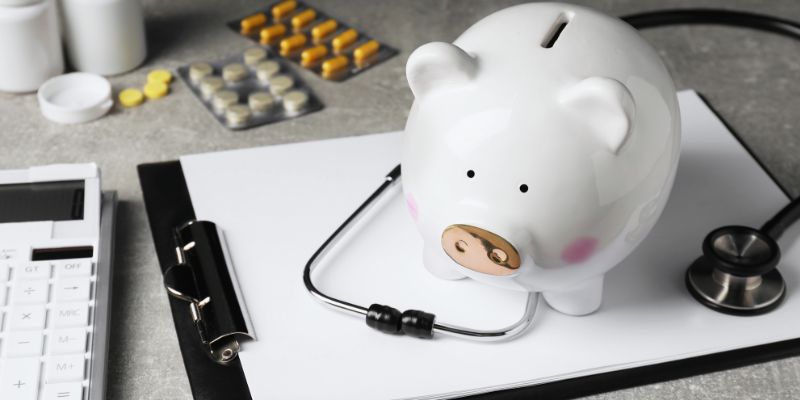Hair Falls Out in the Shower: What It Happens and Why You Shouldn't Worry
Finding hair strands in the shower could make one uncomfortable. People often detect more hair than normal after they rinse or shampoo. Although it can be concerning, hair loss is usually a typical component of the hair growth cycle. The natural hair loss cycle, in which old hair falls out to make room for new hair, is often linked to hair loss in the shower.
Still, too much hair loss may point to underlying problems. Knowing the causes of this hair shedding will assist in reducing worries and stop unwarranted fear. Let's explore the reasons behind shower and toilet hair loss and when you should see a specialist.

Natural Hair Shedding and the Growth Cycle
In the natural growth cycle, hair goes through an anagen (growth), catagen (transition), and telogen (resting) phase. Old hair naturally comes out during the telogen period to make place for fresh strands. On average, people lose between 50 and 100 hairs daily; this shedding is most apparent when they wash their hair.
Shampoo and water in the shower can help loosen these already-detached hairs, enhancing their visibility. Though it's most obvious during the shedding period, hair loss is a regular aspect of the hair's life cycle. Some hair loss in the shower is thus quite natural.
Common Reasons for Hair Loss in the Shower
Many elements can cause hair loss, especially if you use shower-based hair cleaning. Hormonal changes—which could be brought on by menopause, or thyroid abnormalities—are among the most often occurring causes. Stress is another element causing transient hair shedding, a disorder known as telogen effluvium.
Nutrient deficits, some drugs, and scalp disorders, including dandruff or fungal infections, are additional reasons for hair loss. Furthermore, strong hair care products or hot styling tools used too frequently might damage your hair and increase its breakability and shedding tendency. Although some hair loss is inevitable, these elements might aggravate it, making it more obvious.
How to Differentiate Between Normal Hair Shedding and Excessive Hair Loss
Although 50 to 100 hairs a day is considered normal, too much hair loss might raise cause for concern. It could be worth looking deeper if you see obvious hair thinning over time or big clusters of hair in your shower drain. Tracking the trend helps one differentiate between normal shedding and extreme hair loss.
If you often lose more hair than usual or see thinning areas, it could point to an underlying problem, including alopecia or scalp disease. If hair loss lasts many weeks or you have other symptoms, including itching, redness, or pain, see a dermatologist or healthcare specialist to rule out any medical problems.
The Impact of Stress on Hair Loss in the Shower?
Stress is a well-known cause of hair loss, which can directly affect the hair growth cycle. When you are very stressed, your body enters a fight-or-flight mode, which can reduce the hormonal balance. When more hair than usual enters the resting (telogen) phase and falls out, a disorder known as telogen effluvium results. Gradually occurring stress-related hair loss could take several months for the consequences to appear. This hair loss is more noticeable in the shower since the water and shampoo loosen hair that is already ready to go.
Hormone levels decline during childbirth, though, which causes many women to have transient hair loss. Another period when hormonal changes, especially the drop in estrogen, can cause thinning of hair is menopause. Especially when you wash your hair in the shower, hormonal imbalances linked to thyroid problems, such as hypothyroidism or hyperthyroidism, can also lead to hair thinning and shedding.
Nutritional Deficiencies and Their Effect on Hair Health
Good hair growth depends on appropriate nutrition. Hair thinning and shedding could result from shortages in important vitamins and minerals, including vitamin D, biotin, iron, and zinc. Iron shortage is a common reason for hair loss since it disturbs the capacity of the hair to grow and remain healthy. Should you believe you have a nutritional deficit, you should correct it with a balanced diet or supplements. Furthermore, lacking protein contributes to fragile hair strands that break readily while washing.
If you experience flaking, redness, or discomfort on your scalp, it is imperative to treat the underlying disease to stop more damage to the hair. While some shampoos and topical treatments can control these disorders, severe cases could call for medical attention. Early treatment of scalp conditions can help lower hair shedding and stop long-term hair thinning. See a healthcare provider to evaluate your nutrient levels if you see increasing hair loss and believe it may have something to do with your diet.

The Role of Hair Care Products in Hair Shedding
The condition of your hair might be much improved by the shower-time hair care items you apply. Harsh chemical, sulfate, or alcohol-containing styling products, shampoos, and conditioners can rob the hair of natural oils and induce dryness and brittleness. Especially in combination with heat styling equipment or vigorous towel drying, this can cause hair breakage and more loss over time.
Selecting mild, sulfate-free treatments and products will assist in minimizing damage and preserving good hair. Additionally crucial in preventing hair loss is avoiding frequent washing or using. Choose items meant for your particular hair type to guarantee the best outcomes. Although most hair loss is natural, some indicators should cause you to consult a specialist. It could be time to see a dermatologist or other healthcare professional if you see abrupt or notable hair loss, thinning patches, or changes in hair texture.
Conclusion:
Finding hair in the shower is a natural aspect of the hair development cycle. Shedding 50 to 100 hairs a day is common and usually not cause for concern. If you find too much hair loss, thinning areas, or changes in texture, you should look at the source. Common causes of hair loss are stress, hormonal changes, dietary inadequacies, and scalp disorders. Correct actions to handle these problems will help reduce hair loss and encourage better hair growth. See a professional for specific recommendations if needed.












